#Dumas
Text

Louis, Anne, Philippe, Mazarin, Beaufort, and most importantly, Pistache
#dumas#vingt ans après#twenty years after#the three musketeers#les trois mousquetaires#louis xiv#anne d'autriche#philippe d'orléans#jules mazarin#francois de bourbon-vendôme#duc de beaufort#17th century#historical clothing
2K notes
·
View notes
Text
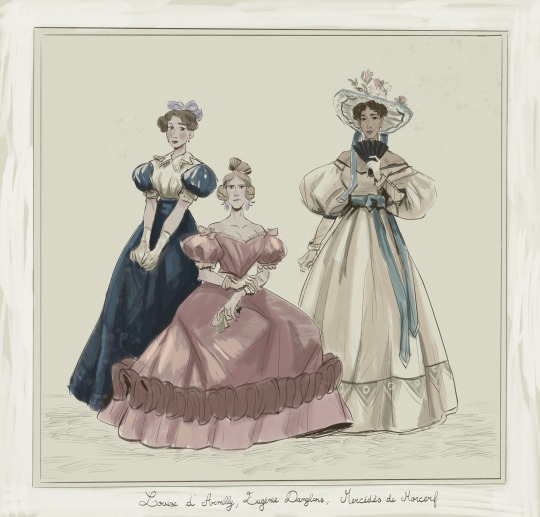
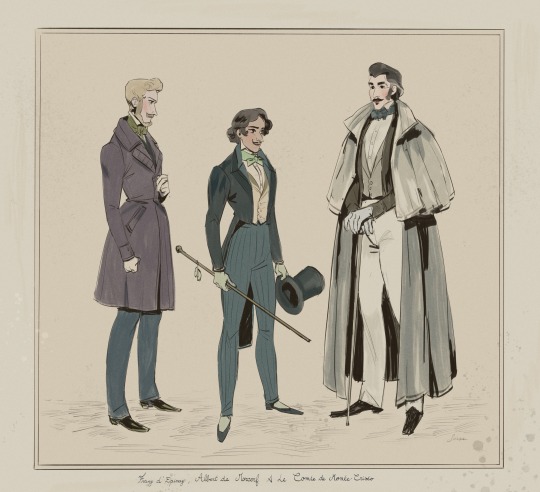
Le Comte de Monte Cristo as fashion plates
2K notes
·
View notes
Text
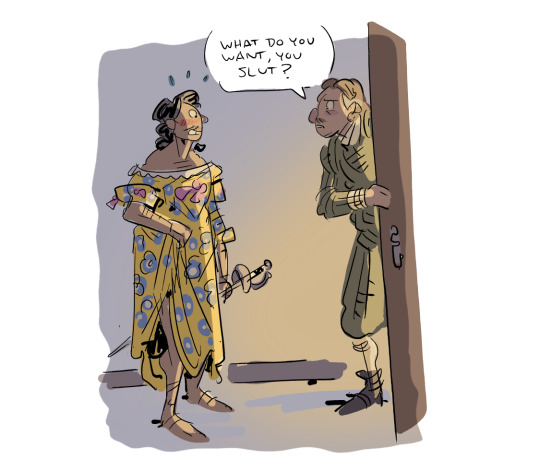
I'm four hundred pages in on the Three Musketeers and so far Athos's lackey Grimaud has uttered only one line of dialogue, which is to call D'Artagnan, at the time wearing a floral dress and sneaking into Athos's antechamber, a slut
(Chapter XXXVIII)
138 notes
·
View notes
Text
⚜The Three Musketeers ⚜

Made as an experiment and as a protest against new film adaptations that insist on showing the Musketeers as dirty, old and lacking any finesse.
#athos#porthos#aramis#the three musketeers#dumas#lee pace#henry cavill#luke evans#in this blog men are required to wear lace leather and velvet#and slutty white shirts#movie that doesn't exist#experiment#photomanipulation
141 notes
·
View notes
Text
Genuine Question for the Monte Cristo fans:
Why is Fernand always ALWAYS the bff of Edmond in every single adaptation? Like, in the books they pretty much meet literally before the almost-wedding of Edmond and Mercedes, and they don't even like eachother much. It's pretty much stated that even Edmond who is benevolent af is only putting up with Fernand because he is the cousin and best friend of his fiancee, and he wants to form a friendship based on their shared love of Mercedes. But like he is not completely blind and knows that Fernand gives him the stink eye. As for Fernand, he is super vary around Dantes and Mercedes has to essentially beg him to be nice to him.
And historians think they were best friends ?!?!
In fact, book Edmond is super kind but he is not THAT stupid. He knows that Danglars is highkey jealous of him, he knows Caderousse is planning to exploit him (as his landlord) after finding out he got a promotion, and he KNOWS that Fernand isn't his biggest fan. He is just amicable with them and polite but doesn't genuinely consider them friends or trust them at all. He only trusts his father, Mr. Morrel and Mercedes, that's it. And Villefort because he doesn't think that being honest with an officer of the law will result in him being fucked over. Which is completely reasonable, and most people would do the same.
So why is his naïveté exaggerated in every adaptation? And WHY do people ship him with Fernand so badly? I get the whole "My bro stole the love of my life " trope but come onnnn.... it's a cliche and not what Dumas intended at all when writing the book! (At least that's what I think, I can't exactly ask him...)
#the count of monte cristo#count of monte cristo#dumas#alexandre dumas#tcomc#edmond dantes#dantes#mercedes#mercedes mondego#fernand mondego#monte cristo#classical literature#literature#gankutsuou#film
60 notes
·
View notes
Text
One evening when (Dumas) was returning from a ball, wet through and chilled, instead of going up to his own room he stopped at Ida's, (his wife's), knowing that he should find a fire there. Ida, who had already gone to bed, received him crossly, but Alexander was long-suffering; he peacefully warmed his feet and then went to a table and began to work.
Suddenly the door of the dressing-room opened and, clad in his shirt, Roger de Beauvoir appeared. . . . Alexander assumed a high tone and Beauvoir explained that it was freezing in the dressing-room and that no one could possibly stay there. Without replying, Alexander marched up and down the room with long strides and the exercise seemed to appease him.
Outside the rain was beating against the window. Could one, in all conscience, put any one out in such weather? Dumas invited Beauvoir to spend the night in an armchair, while he went to bed next to Ida.
A few minutes later, distressed to see the poor fellow shivering before the dying fire, he told Roger to come to bed, too. And there they lay, the three of them, sleeping the sleep of innocence.
In the morning Alexander woke up first, looked long at the two guilty ones beside him, and then plucked at Beauvoir's shirt sleeve. "Shall two old friends," said he "quarrel about a woman, even when she's a lawful wife? That would be stupid," and seizing the hand of the handsome Roger across Ida's sleeping form, he added: "Roger, let us become reconciled like the ancient Romans, on this public place."
(source, The Fourth Musketeer )
141 notes
·
View notes
Text

Dumas
46 notes
·
View notes
Photo
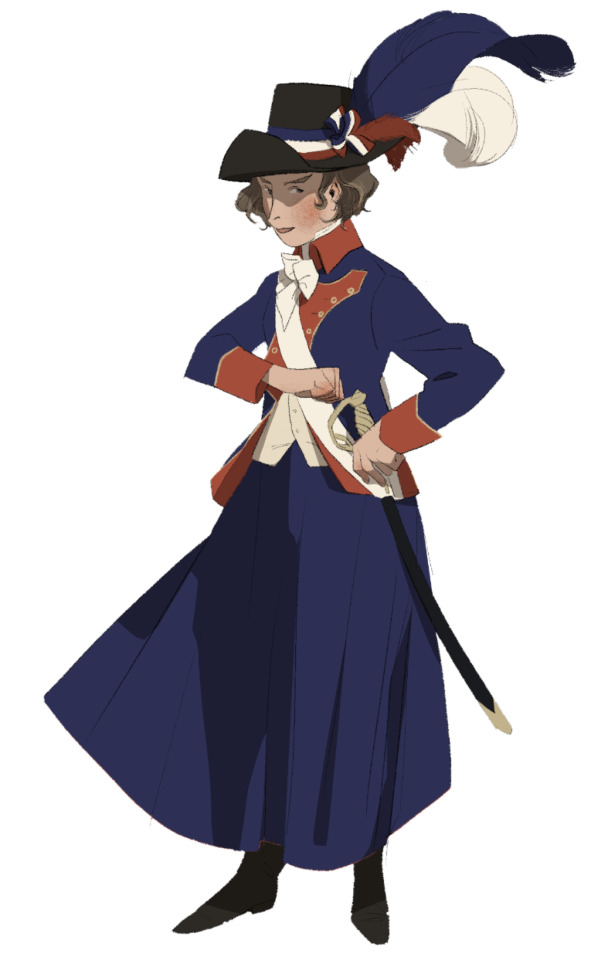
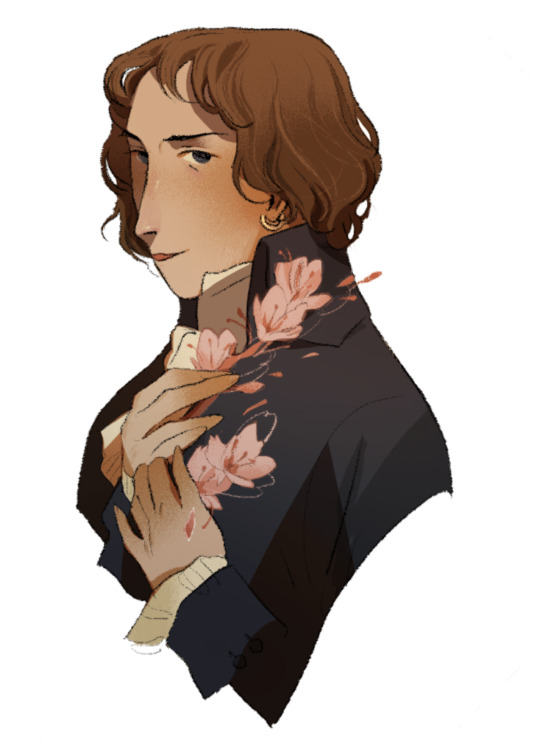
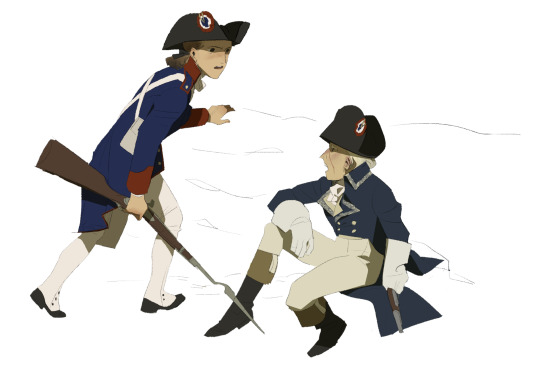
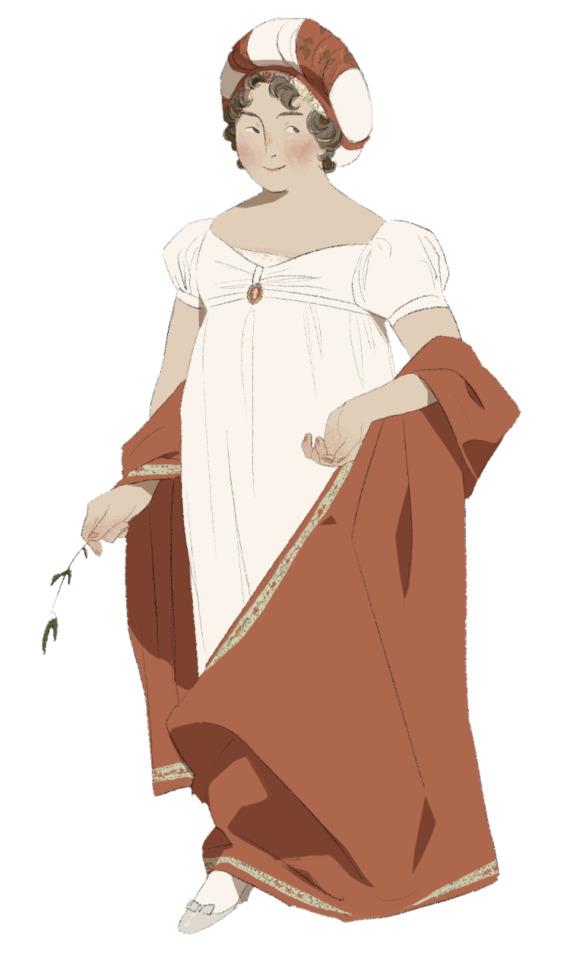
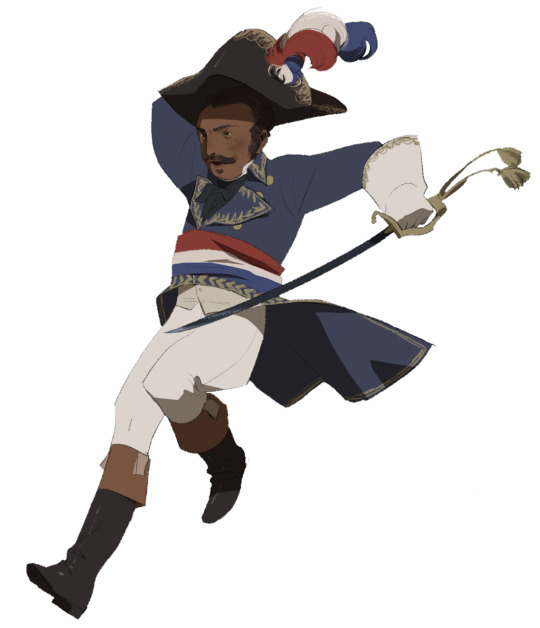
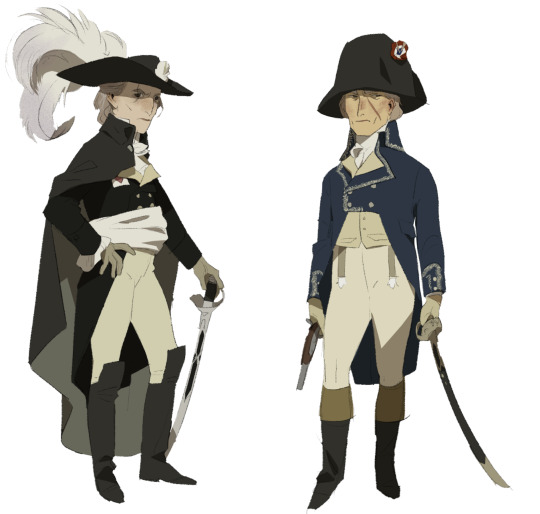
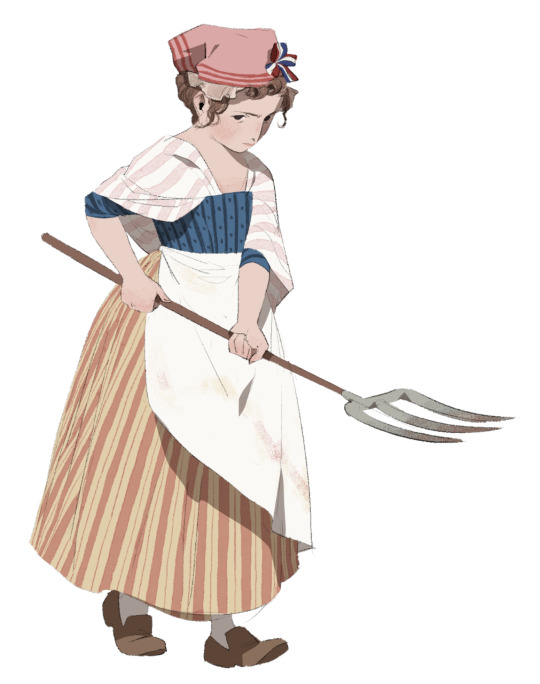
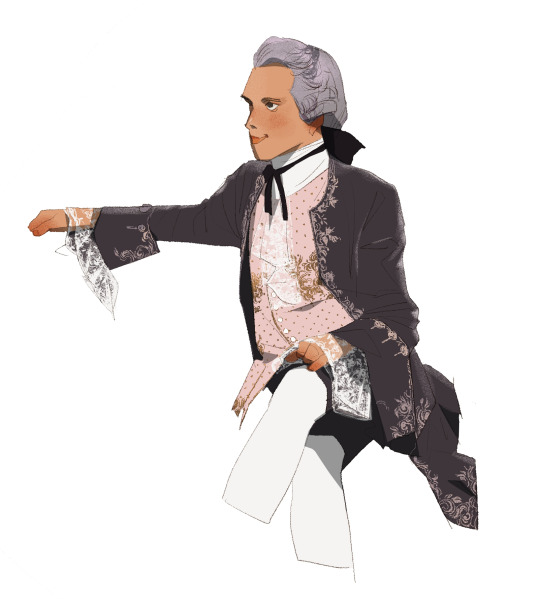
Some non-Robespierre pieces that I haven’t shared here aaa
#pauline leon#dumas#cimordain#ninety-three#victor hugo#dangerous liaisons#saint just#madame de stael#sans-culottes#theroigne de mericourt#personal work
2K notes
·
View notes
Text

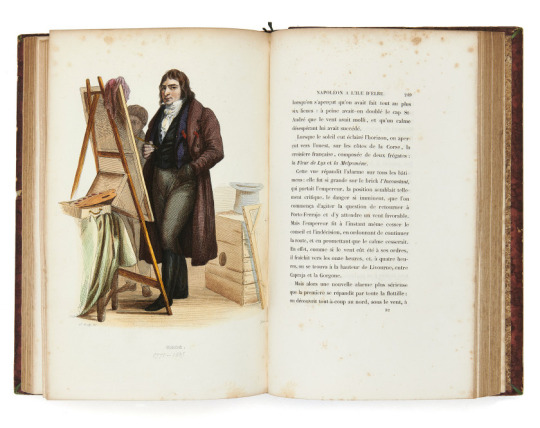
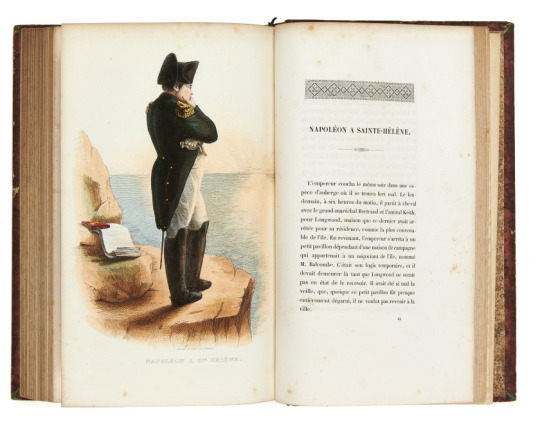

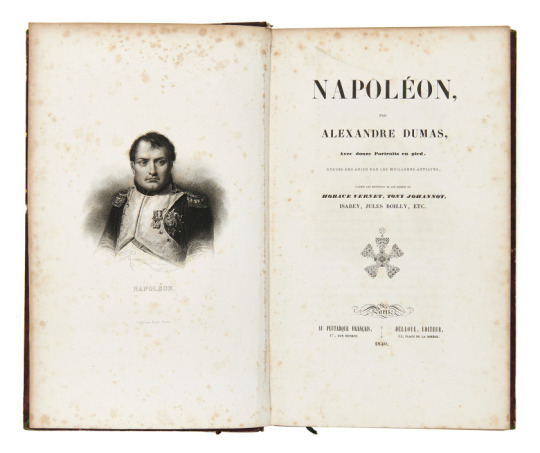

Antique biography Napoleon, by Alexandre Dumas (1849)
Source: Artcurial — Sale Alexandre Dumas - 27 september 2023
#napoleon#Artcurial#Alexandre Dumas#Dumas#napoleon bonaparte#vintage#auction#napoleonic era#napoleonic#first french empire#french empire#19th century#france#history#art#illustrations#antique#vintage book#antiques#antique book#1800s#1840s#1849#French lit#French literature#napoleonic wars
44 notes
·
View notes
Text
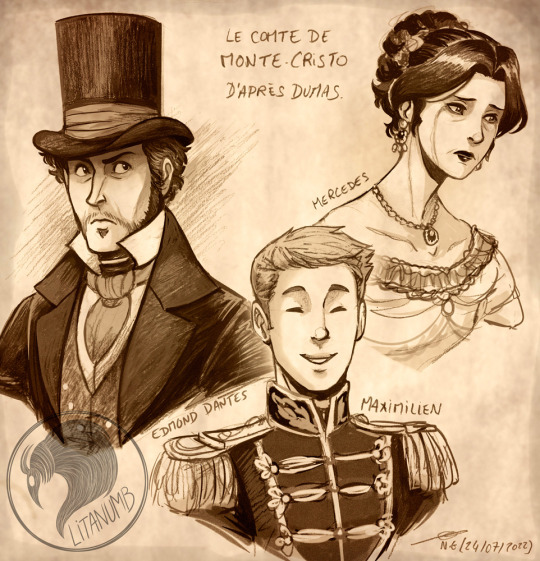
My Instagram account
Today is the 220th birthday of Alexandre Dumas! 🎉
#dumas#alexandre dumas#the count of monte cristo#count of monte cristo#edmond dantes#monte cristo#french literature#xix#classical literature#france#writer#sketch#sketchbook#artists on tumblr
451 notes
·
View notes
Text
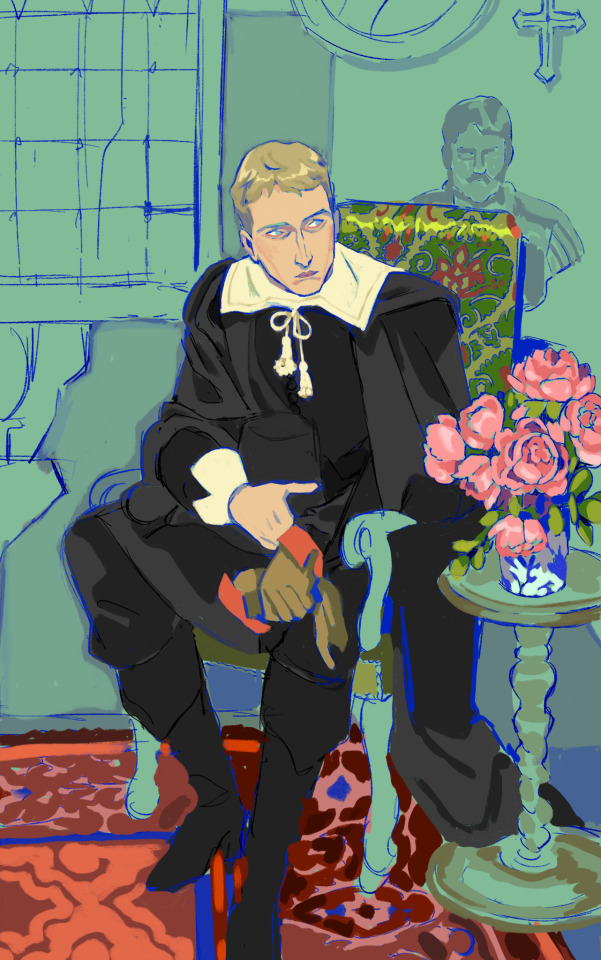

Mordaunt sketches, 1648 at Mazarin’s and 1650 in a world where everything’s all right.
2K notes
·
View notes
Text
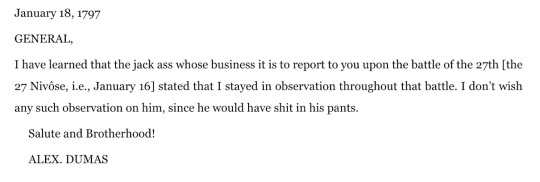
A letter to Napoleon from General Alex Dumas
(from The Black Count by Tom Reiss)
26 notes
·
View notes
Text

There's no wrong answer
77 notes
·
View notes
Photo
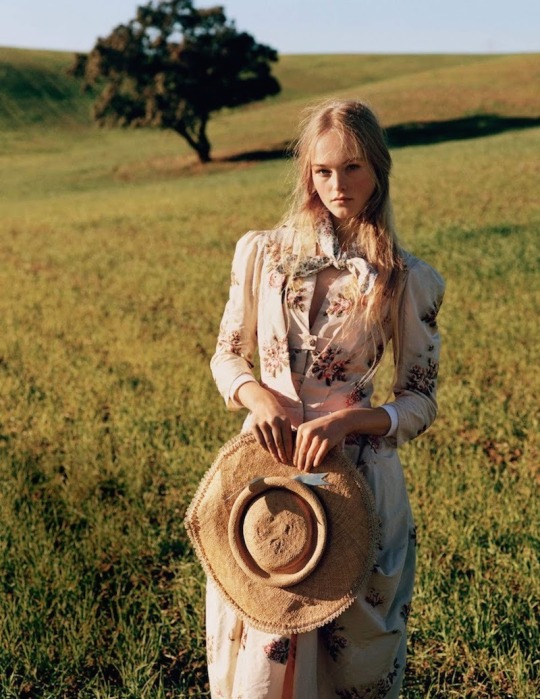
On a toujours associé la campagne à l'amour et l'on a bien fait : rien n'encadre la femme que l'on aime comme le ciel bleu, les senteurs, les fleurs, les brises, la solitude resplendissante des champs ou des bois.
- Alexandre Dumas Fils
#dumas#alexandre dumas fils#quote#french#literature#femme#countryside#fleurs#flowers#nature#outdoor#beauty#amour#love
61 notes
·
View notes
Text

Eva Green et Eric Ruf dans “Les Trois Mousquetaires : Milady” de Martin Bourboulon - deuxième volet du diptyque adapté du roman “Les Trois Mousquetaires” d'Alexandre Dumas (1844) - décembre 2023.
16 notes
·
View notes
Text
ah that bit in every Romanticist bio where we gotta get the who's who as the author sees it (all this is from the Fourth Musketeer)
At the Café de Paris, on the boulevard, Alexander breathed the air of the great world. There the celebrities of journalism, literature, and dandyism met.
...this gets long
That man with the warlike hat and blinking eyes' is Nestor Roqueplan who has now left his garret, his washbasin-clock and his pistols-candelabra for the comfortable offices of the Figaro.
OK was this before/after/during its time as an anti-Romanticist paper??
Next him is Jules Janin, who looks comfortably rotund but thinks only of snapping at his neighbor, and who will later fight a duel with Dumas about a wretched question of dramatic criticism.
JULES JANIN DUELED ALEX DUMAS??
...JULES JANIN DUELES ALEX DUMAS AND LIVED?!?
That fellow by way of being a gentleman, dressed with the correctness of an English lord in a blue coat with gold buttons, a yellow waistcoat, and pearl-gray trousers, is the husband of Marie Dorval, Merle, one of the legitimist party, an epicure and an authority on gastronomy.
..wait, isn't that outfit a Werther cosplay? Am I getting the colors wrong?
. . Over at the long table, orating in a high voice, with his face awkwardly swathed in an enormous neckcloth to hide certain unpleasant scars, is Veron, nicknamed the Prince of Wales, actually the manager of the Revue de Paris, who pays Dumas royally, at least for the time being. With his high color, his greedy lips that look as if they were smeared with jam, and his gluttonous eyes, he seems at once an abbot of former times and a comedy valet.
This guy is way more important than you'd guess by how little he shows up in histories! Also he got his start in patent medicine, which is really jumping out at me post-Blue Castle read!
That tall, thin, dark man, with hair cut brush-shaped and a prominent nose, wearing a velvet caftan and a cap lined with martin fur, is Adolphe de Leuven, librettist of the Postillon de Lonjumeau, who launched Alexander. By his side, flaunting a magnificent kidskin waistcoat and whirling his rhinoceros cane, is handsome Roger de Beauvoir, with a mop of curly black hair, the only one of Alexander's friends who is an aristocrat of wealth-Beauvoir who entertains six hundred people at the Hôtel de Pimodan, and who has just challenged Balzac for accusing him of being named neither Roger nor Beauvoir. Although Balzac took the trouble to send him "forty pages of excuses," the dandy will listen to nothing and proclaims: "I scorn M. de Balzac's prose, I want only his skin!"
holy shit Balzac you messed up??
Here is Eugène Sue, very smart in his sea-green coat, with a rather vulgar turn of the nose that detracts from his good looks. Last, simpler and jollier than the rest, is that good fellow Méry who passes for a librarian at Marseilles, but who is always off on a lark to Paris; an amazing improviser who can compose correctly an act of a classical tragedy within two hours, and in the drawing-rooms describe the tortures of hell so vividly that the ladies beg for mercy.
Fun new party game: Describe the tortures of hell!
Near these gentlemen, but on a lower plane, the madmen appear. "He who was Gannot" and has made himself God under the name Mapah, is a fop and a billiard player now fallen on evil days who sends out manifestos signed "By Our Apostolic Ruin."
The Mahpah is one of the wildest ...visionaries? religious ...somethings? movement leaders? of the time, love seeing him get mentioned (Wiki) (Nonbinary wiki)
Jean Journet, called the Apostle, goes about dressed as a begging friar and sells his verses unfailingly entitled "Songs" or "Cries."
...I have no idea who this is . Sounds like he's coping with poverty very artistishly.
Poor Petrus Borel imagines himself to be a wolf; at his house Alexander has eaten cream from a skull. . . .
excuse you he never said he was a wolf
he said he was a werewolf
and no one actually disagreed
also man,you serve ice cream in skulls ONE time...
...you might see (Dumas) in the rue Grange-Batelière, in the salon of the dancer Marie Taglioni, "the sylph of sylphs," or at Delphine de Girardin's on the days when she recited her poems. But Alexander always grew sentimental near "the Muse" and asked her to receive him in private. "I love you," he said, "with an affection too selfish to share you with the world." Then, when they were alone together, she would interrupt him with questions about dramatic art. "Do tell me how one writes for the theater?" Dumas laughed at what he called "the naïveté of genius."
He was attractive to women, there was no doubt of that, even to the most distrustful of them. When Sainte-Beuve, who was fond of playing the rôle of intermediary, proposed to introduce Alfred de Musset to George Sand, she answered: "I don't want you to bring Alfred de Musset. He's too much of a dandy, we should never get along together. . . . Instead of him, do bring Alexander Dumas, in whose art I have found a soul, exclusive of his talent." Alexander came and Sand took a great liking to him.
Wow, imagine if George Sand had ever hung out with Musset
What a disaster that would have been huh
in that alternate world ><
#place names!#people!#too many to tag#alexandre dumas#Dumas#Delphine Girardin#George Sand#Petrus Borel#French Romantics
44 notes
·
View notes